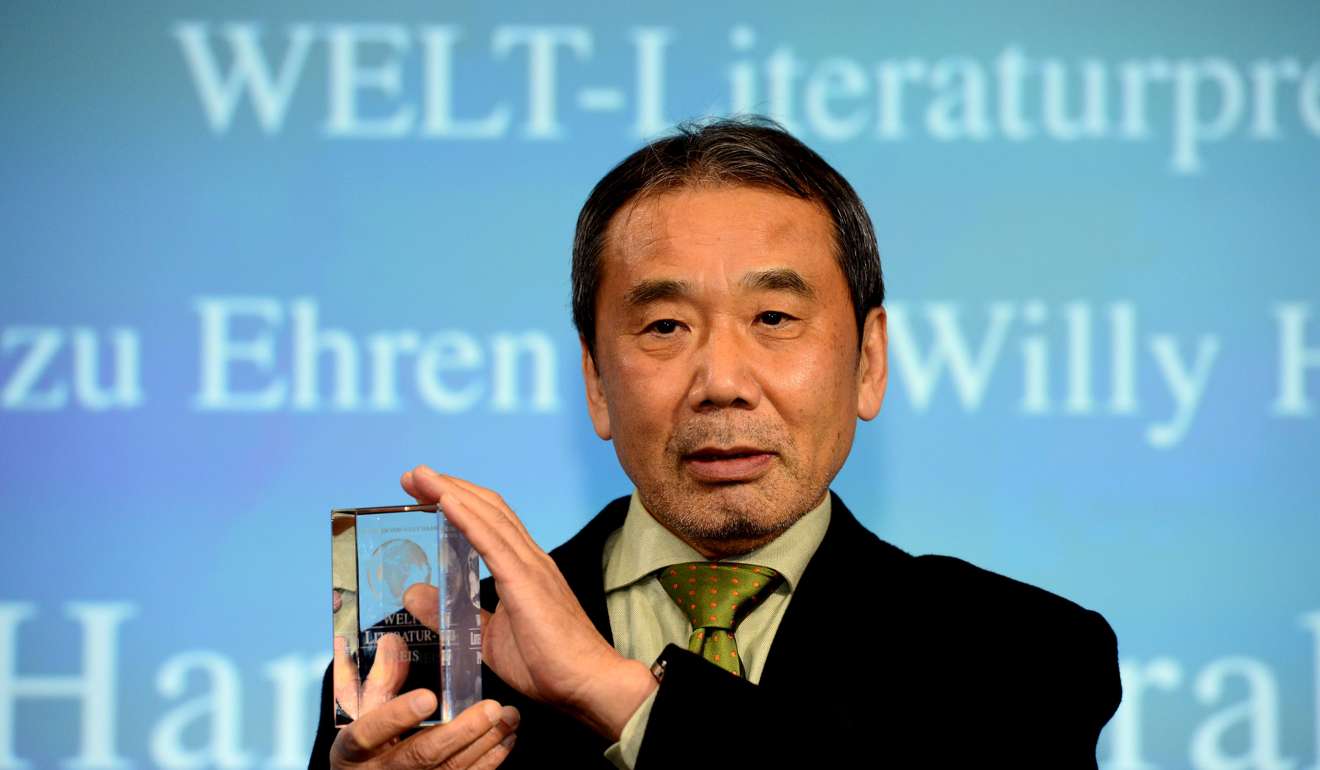
Author Haruki Murakami calls for fight against ‘replacing memory’ as historical revisionists in Japan grow bolder
Haruki Murakami, the Japanese author perennially pegged as a contender for the Nobel literature prize, has called for a fight against historical revisionism in a rare interview with Japanese media.
His comments came after a successful Japanese hotel chain operator triggered an angry backlash from China earlier this year for his book claiming the 1937 Nanjing massacre committed by Japanese troops a “fabrication”.
Critics say that revisionists have grown bolder under nationalist Prime Minister Shinzo Abe, who says Japan must shake off past constraints, including altering its war-renouncing constitution imposed by American occupiers after the second world war.

China says 300,000 people died in a six-week spree of killing, rape and destruction by the Japanese military that began in December 1937.
Some respected academics estimate a lower number of victims, but mainstream scholarship does not question that the incident, known as the “Rape of Nanking,” took place.
Published in February, Murakami’s latest book Killing Commendatore references the Holocaust and the Nanjing massacre.

Asked about why he addressed the issues, he told the Mainichi Shimbun newspaper: “Because history is the collective memory of a nation, I think it is a grave mistake to forget about the past or to replace memory with something else.”
“We must fight” against historical revisionism, he added.
“Novelists are limited in what we can do, but it is possible for us to fight such forces in the form of storytelling.”
Murakami has often criticised his country for shirking responsibility for its second world war aggression.
In 2015, he said Japan must repeatedly say sorry to China, Korea and the other countries it invaded in the 20th century until its former victims have heard the apology enough.
Murakami became a global sensation with the publication of Norwegian Wood in 1987 and has written several bestsellers including 1Q84 and Kafka on the Shore.

.png?itok=arIb17P0)